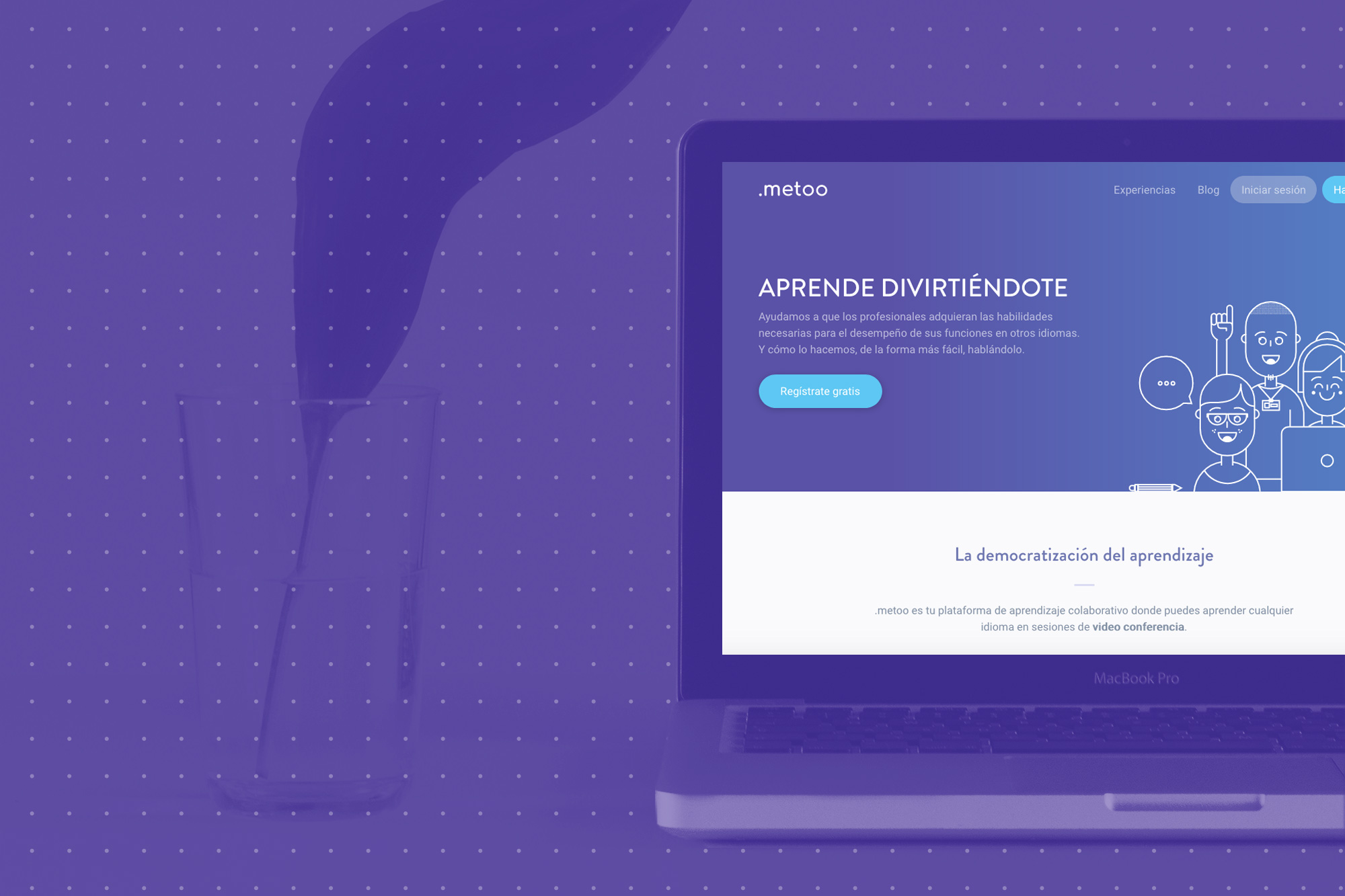Hey buddies! Hoy os explicamos 13 phrasal verbs que puedes comenzar a utilizar en tu trabajo hoy mismo.
I know, los phrasal verbs nos dan un poco de miedo y pueden ser estresantes. Además no nos resulta nada natural utilizarlos, pero si poco a poco los vamos incorporando en nuestro discurso, nos sentiremos más cómodos. Es importante conocerlos, no sólo para utilizarlo nosotros, sino para entender a otras personas cuando los usan.
Hoy os explicamos algunos que os pueden resultan de gran ayuda, vamos allá!
El primero es uno de mis favoritos porque es super útil, lo puedes utilizar en mucho contextos
1. To deal with (something or someone) – to manage, to take the necessary action, especially in order to solve a problem.
E.g.
We have to deal with problems every day.
He has excellent abilities to deal with people.
Normalmente si tenemos que ocuparnos de un problema, hay que encontrar soluciones, para esto podemos usar
2. To find (something) out – to discover a fact or a piece of information
E.g.
We found out what the problem was.
They’ve found out the cause of the delay, it was a shipping mistake.
3. To figure (something) out – to understand, to be able to know the cause of a problem and find a way to solve it.
E.g.
At first I couldn’t figure out the answer.
We’ll figure it out and suggest a solution.
4. To work (something) out – to work until you find a solution.
E.g.
After some difficulties we could finally work out the budget problem.
Don’t worry, we will work it out.
Para solucionar cosas, ayuda mucho tener buenas ideas
5. To come up with (an idea, a plan) – to suggest or think of an idea, plan or solution.
E.g.
We came up with a completely new approach.
She has come up with an excellent idea.
A veces, es también necesario revisar y considerar las cosas de una manera más detallada, estos otros phrasal verbs pueden ayudar
6. To go over (something) – to review. Also, to examine something carefully.
E.g.
Let’s go over the mail before sending it to our clients.
They’ll need to go over the report to identify common issues.
7. To check (something) out – to examine something to make sure it’s correct, true, satisfactory.
E.g.
Could check out the report first?
Sure, I’ll check it out and let you know.
8. To think (something) through – to consider something carefully.
E.g.
We will think this proposal through and get back to you in a few days.
Let me think it through before making a final decision.
Otras veces es necesario tener las cosas muy claras e incluso consultarlas con alguien más
9. To spell (something) out – to explain in a very clear way.
E.g.
I’ll need to spell everything out to the team, so that they understand.
She had to spell it out for us to get a clear idea.
10. To run by (someone) – to tell someone about something, to make sure they understand or approve.
E.g.
I’ll have to run this by my boss before we agree to the deal.
Can I run your proposal by our committee first?
Acabamos con otros phrasal verbs más faciles, pero igualmente útiles en el contexto de trabajo.
11. To get back to (someone) – to call, write or speak to someone at a later time.
E.g.
I’ll get back to you with an answer later.
Can you get back to me when you have a moment?
12. To put off – to postpone
E.g.
The meeting has been put off until next week.
We can’t put off this decision.
13. To call off – to cancel
E.g.
I got a couple of meetings called off today.
They’ve called off the marketing campaign.
Por último, un truco para que la tarea de incorporar algunos de estos phrasal verbs nos dé menos miedo.
Elige solo 2-3 para empezar y ponlos en contexto para que te resulte más fácil identificar el significado, inventa un párrafo cortito, por ejemplo:
Last week we had to deal with a complicated situation at work. First, we found out it was a problem of communication. Then, someone came up with the idea of doing some interviews to team leaders to figure out what was exactly the problem. We ran the results by the HR department and finally a decision was made to implement some changes.
Poco a poco empieza a ponerlos en práctica de esta manera y cuando ya tengas dominados esos, repite el proceso con nuevos phrasal verbs.
Easy peasy!

En nuestra vida diaria, tanto personal como en el trabajo, tenemos que enfrentarnos a situaciones difíciles y a problemas de todo tipo.
En el post de hoy veremos cómo hablar y describir problemas y dificultades en inglés. Let’s go!
Para describir problemas y dificultades podemos utilizar varias estructuras, con palabras como difficult, hard, problem, trouble…
To have difficulty
It’s difficult / hard to (do something)
I find it difficult / hard to (do something)
E.g.
I had difficulties to find my first job.
It is hard for him to understand complex technical texts.
I find it difficult to speak on the phone in English.
Más opciones con el verbo have + problems / trouble
To have problems with (something)
To have trouble with (something)
To have problems (doing something)
To have trouble (doing something)
E.g.
He usually has trouble with the wi-fi connection.
We will have problems with the budget.
They had problems installing the new version.
She has trouble writing mails in English.
Observa: utilizamos problems normalmente en plural pero trouble suele ir en singular.
Otros verbos que podemos usar para referirnos a situaciones difíciles:
To face a problem / a situation – enfrentarse a un problema
E.g.
We faced some problems when we launched the website.
To run into difficulties– encontrarse con dificultades
E.g.
They run into difficulties to change the trip arrangements.
To deal with a problem / a situation- manejar, ocuparse de un problema y tomar las acciones necesarias para solucionarlo.
En este caso, podemos utilizar varios verbos con un significado similar
To manage
To handle
To tackle
E.g.
We need to tackle this problem as soon as possible.
Customer service usually handles problems with the orders.
He will deal with the difficulties of the marketing campaign.
Deal with es un verbo particularmente útil, puedes utilizarlo en diferentes contextos y además cuenta como phrasal verb! Si quieres conocer más phrasal verbs como deal with para tu trabajo este post puede interesarte.
Finalmente, casi todos los problemas tienen solución, podemos usar estos verbos
To solve (a problem)- resolver
To overcome (difficulties)- superar
E.g.
We called a technician to solve the internet problem.
You can overcome difficulties by talking to your team.
De manera más informal, para arreglar o solucionar algo también puedes utilizar el verbo
To fix
E.g.
She didn’t need help to fix some of the problems.
There was a problem with the printer but we fixed it quickly.
Y ahora vamos a ver algunas de estas expresiones en contexto para que veáis cómo podeis aplicar varias de ellas al describir problemas y dificultades en inglés.
When I first worked in a different country I didn’t have many difficulties to find a job but I had trouble finding a good company to work with. At first I found it hard to speak in a foreign language because people had trouble understanding me. I manage to overcome this situation by talking to everybody, without being afraid.
I realize that most of the difficulties I faced, were solved with more communication.
Espero que ahora quede más claro pero si tienes alguna duda o dificultad, puedes dejarnos un comentario.

Ahora que comienza el curso seguro que muchos os estáis planteando de nuevo el tema de aprender inglés o retomarlo donde lo dejasteis (si es que ya lo hacíais). En cualquier caso, este post te servirá de ayuda ya que os damos algunos consejos y recursos con los que verás cómo aprender inglés por tu cuenta.
Y es que siempre nos pasa lo mismo, y me incluyo en el saco, nos proponemos ponernos en serio con algo plenamente convencidos y seguros de que cumpliremos a pies juntillas pero vamos a reconocerlo, ponerse a hacer algo por uno mismo parece que cuesta más esfuerzo. Es importante partir de dos conceptos fundamentales: motivación y disciplina.
Y teniendo en cuenta todo lo anterior y tanto si estás pensando en tomar clases como si no, estos tips te van a resultar super útiles porque son perfectamente compatibles en ambos casos, de hecho incluso verás que avanzas más rápido y le sacas más partido. Ahora sí, vamos a ver cómo aprender inglés por tu cuenta de una forma sencilla. Comenzamos!
PASO 1: motivación y disciplina
La motivación es importante porque va a ser lo que nos impulse a comenzar pero tan importante, o incluso más diría, es la disciplina. La disciplina implica crear una rutina, unos horarios, en este caso de estudio y práctica y ceñirnos a ellos, incluso cuando no estamos tan motivados, cuando estamos cansados, cuando no tenemos un buen día, etc hay que ponerse a ello y seguir avanzando aunque sea paso a paso.
Por tanto, este sería el primer punto, piensa con calma cuánto tiempo y esfuerzo quieres dedicarle cada día/semana y a partir de ahí empieza a organizar tu horario. Es esencial que le dediques tiempo de manera regular, si puede ser cada día mejor, es decir, vale más dedicarle 15-20 minutos todos los días y no saturarnos, que ponerte 6 horas seguidas el fin de semana. Aunque aquí cada uno sabe cómo funciona mejor, si es tu caso, adelante! se trata de encontrar la fórmula que funciona para ti a la hora de aprender inglés por tu cuenta.
PASO 2: ¿por dónde empiezo?
Buena pregunta, pues una buena idea puede ser hacer un test de nivel, porque eso nos va a permitir saber dónde estamos, sobre todo si partimos de una base más básica, o si hace tiempo que no lo usamos, sirve también para «desempolvar» y ser conscientes de en qué punto nos encontramos.
Puedes encontrar muchos level test online, nosotros te recomendamos éste de cambridge
No es muy largo, son 25 preguntas y ves los resultados (aunque no las respuestas correctas) sin introducir ningún email. Recuerda también que es un resultado orientativo para que te hagas una idea.
PASO 3: ¿y después qué?
Vale, ya sé mi nivel aproximado y ¿ahora qué? Aquí el tema de cómo aprender inglés por tu cuenta ya se pone serio. Si ya hemos creado un horario toca «reunir» el material que vamos a utilizar. Esto es lo fácil y a la vez lo difícil, hoy en día en internet podemos encontrar de todo, usa tu buen criterio y ves probando cosas que te gusten y decide las que se adaptan mejor a ti.
Algunas de nuestras recomendaciones
Para darle un repaso a la gramática: sin duda, no puede faltar el archiconocido libro English Grammar in Use de Raymond Murphy, lo tienes en varios niveles.
Si lo tuyo es más practicar y hacer ejercicios online puedes empezar con algunos de los siguientes:
Oxford University Press
English Grammar
My english pages
Agenda Web
English Grammar Online
Para mejorar tu vocabulario: tienes los libros de English Vocabulary in Use (de Cambridge también). Además la mayoría de los enlaces anteriores tiene también secciones de vocabulario (y en general un poco de todo). Es muy interesante la parte de vocabulario y speaking del examen IELTS (aunque no lo estés preparando) porque aprendes vocabulario por áreas temáticas o puedes leer también algunos de nuestro mejores posts, aquí tienes una recopilación
Para desarrollar tus listening skills: aquí tienes variedad, desde ejercicios de listening hasta podcasts, audiolibros, ver canales en youtube en inglés (incluso si no son relacionados con aprender inglés), por supuesto ver series y pelis en inglés, todo lo que sea «hacer oído» te va a venir muy bien a la hora de aprender inglés por tu cuenta. De nuevo, encuentra los temas que más te interesan, mira éste post para ver más recomendaciones.
Con respecto al reading y al writing: si no quieres complicarte la vida busca sitios donde tengan recursos para preparar cualquiera de los exámenes (FCE, CAE, IELTS, TOEFL, TOEIC…), sobre todo para la parte del writing porque allí verás modelos o pautas para hacer diferentes tipos de writing además de encontrar readings de todo tipo. Pero la parte del reading también es flexible, puedes por supuesto leer blogs en inglés, leer las noticias y otras cosas que te interesen y si te gustan los libros prueba la «lectura adaptada». ¿Esto qué es? Pues hay varias editoriales que tienen lo que se llama «graded readers» es decir, libros adaptados por niveles (del nivel 1 al 5 ó 6 ), lo que significa que incluso teniendo un nivel básico podrás comenzar a leer en inglés, genial verdad? Algunas referencias
Macmillan
Pearson
Oxford University Press
Penguin
PASO 4: enjoy!
Muy importante, disfruta! aunque todo esto suene a mucho trabajo no tiene porqué ser un rollo, hazte un plan en el que vayas variando, un día ejercicios de gramática/vocabulario, otro día un listening, que puede ser escuchar tu música favorita con la letra de la canción, otro día leer un blog y así. Busca también cosas que no estén necesariamente relacionadas con el inglés si no con tus hobbies o temas de tu interés, que te gustan los videojuegos pues te pones los textos también en inglés, que te gustan las manualidades, ponte a ver videos en youtube, que eres un experto en algo, ayuda a otros en foros… tienes muchas posibilidades. Sé ambicioso y pon todo de tu parte pero sé también realista y paciente. De vez en cuando, párate a pensar en todo lo que ya has conseguido y prémiate por tus progresos, que aunque no siempre los veas están ahí.
PASO 5: ¿y el speaking?
La parte del speaking, esta es la parte un poquito más complicated de cómo aprender inglés por tu cuenta pero no por ello hay de desanimarse, vamos a lo fundamental, no hay ningún secreto todo es ponerse y practicar cuanto más a menudo mejor y para ello es fundamental perder el miedo y la vergüenza como comentamos en este post.
Y una vez dicho esto una de las opciones más fáciles es un intercambio de idiomas o language exchange, de nuevo busca sitios (online y offline) para poder poner en práctica todo el vocabulario y estructuras en los que has estado trabajando por tu cuenta.
Pero si lo que te resulta complicado porque no eres muy disciplinado a la hora de ponerte a aprender inglés por tu cuenta es el speaking, no te preocupes siempre puedes contar con la ayuda de un buen profesor, que además de hacer correcciones puede guiarte y motivarte sea cual sea tu nivel y tu objetivo.
Por cierto, ¿Sabías que en .metoo realizamos clases de inglés online? Si, si déjame que te cuente un poco más sobre nuestras clases.
???????? Nuestros profesores son todos titulados y con mucha experiencia.
???????? Las clases se realizan a través de vídeo conferencia sin que tengas que instalarte ningún programa con skype, hangout o cualquier otro. Nosotros nos encargamos de todo, tú solo necesitas internet en tu ordenador/tablet/móvil.
????♀️ Con un profesor en vivo y en directo, nada de video tutoriales.
???? Tu decides cuándo y dónde. Nuestros horarios son flexibles y puedes hacerlas desde la oficina, desde la comodidad de tu casa o desde donde te apetezca.
???? ¿Y qué pasa si un día no puedes asistir clase?. Pues nada! la puedes cancelar y volver a reservarla en otro momento para que no pierdas ninguna.
???? Además al finalizar la clase tu profe te enviará correcciones, aspectos a mejorar y recursos útiles que podrás consultar en cualquier momento y lugar dentro de nuestra plataforma.

